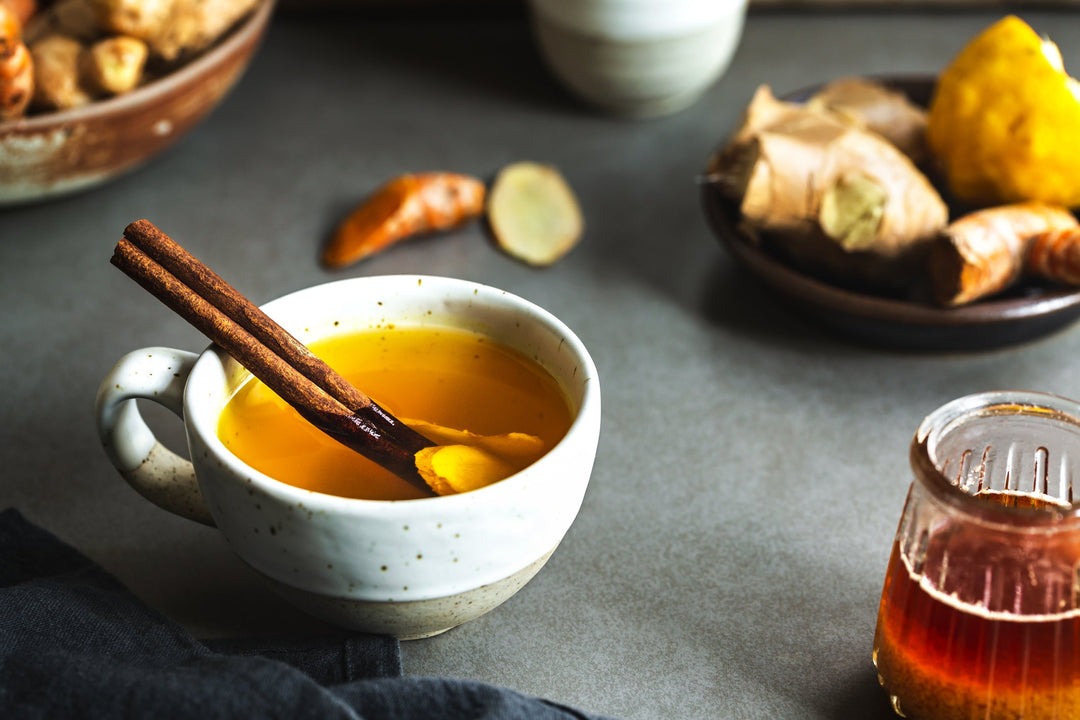Turmeric vs Curcumin: Which Offers The Most Health Benefits?
Turmeric versus curcumin: which offers the most health benefits?
Turmeric has been used for centuries in Ayurvedic medicine and is a staple of South Asian cooking. It’s also gaining mainstream popularity, popping up everywhere from iced lattes and face masks to health supplements.
If you’ve read our blog before, you may already know that curcumin is one of the key active compounds found in turmeric powder. It’s known as the most powerful anti-inflammatory component , giving turmeric its much-buzzed-about healing properties. In that case, should you take curcumin extract on its own? Should you try eating curry everyday? Or should you incorporate turmeric capsules like TurmeriX into your daily routine?
To answer these questions, let's start with a quick refresh on turmeric versus curcumin. We’ll explain their differences as well as the overall health benefits, to help you determine what may be best for you.
What is turmeric powder?
Did you know that your favourite Indian curry owes its bright yellow colour to turmeric? Turmeric, or curcuma longa, is a flowering plant that’s part of the ginger family. Turmeric powder is created by boiling, drying and crushing part of the plant, mainly its roots. Its powder form has been used in traditional South Asian and Middle Eastern dishes for thousands of years. Nowadays, it’s also a popular form of alternative therapy. Turmeric has historically been used in traditional Western herbal medicine to relieve inflammation and contains a variety of bioactive compounds, including curcumin.
Curcumin, defined
The chemical compounds found in turmeric include a group of plant-based nutrients called curcuminoids. Curcumin is the most important compound within this group. Curcumin is the main active ingredient or turmeric which has been used traditionally in Western herbal medicine as an anti-inflammatory, and has antioxidant properties — but it can’t do it all on its own.
Due to its low concentration and absorption levels in turmeric, combining curcumin with an activator like black pepper helps your body utilise far more of this compound. That’s why turmeric powder on its own has less bioavailability. Without the right activators, less of those beneficial components are absorbed into the body. If you choose to take curcumin on its own, be sure to look for an extract or blend that contains an activator ingredient such as piperine (black pepper).
The difference between turmeric and curcumin
Curcumin from turmeric has powerful anti-inflammatory properties, according to traditional Western herbal medicine. However, there are other components and even other curcuminoids (demethoxycurcumin and bisdemethoxycurcumin) in turmeric powder. So, which offers the most health benefits, turmeric versus curcumin?
Ultimately, both have their advantages. Turmeric powder on its own has poor bioavailability but is easy to incorporate into a whole foods diet through a variety of recipes. Some curcumin supplements can have high bioavailability but lack the added health benefits of turmeric’s other active compounds.
Rather than isolating curcumin entirely from turmeric, it’s possible to activate it and improve absorption by using another ingredient. Black pepper is one of the most widely known activators. Our TurmeriX blend contains black pepper, along with other natural herbs and spices, that increase the bioavailability of turmeric powder. Now you can fully reap the benefits of this natural superfood!




